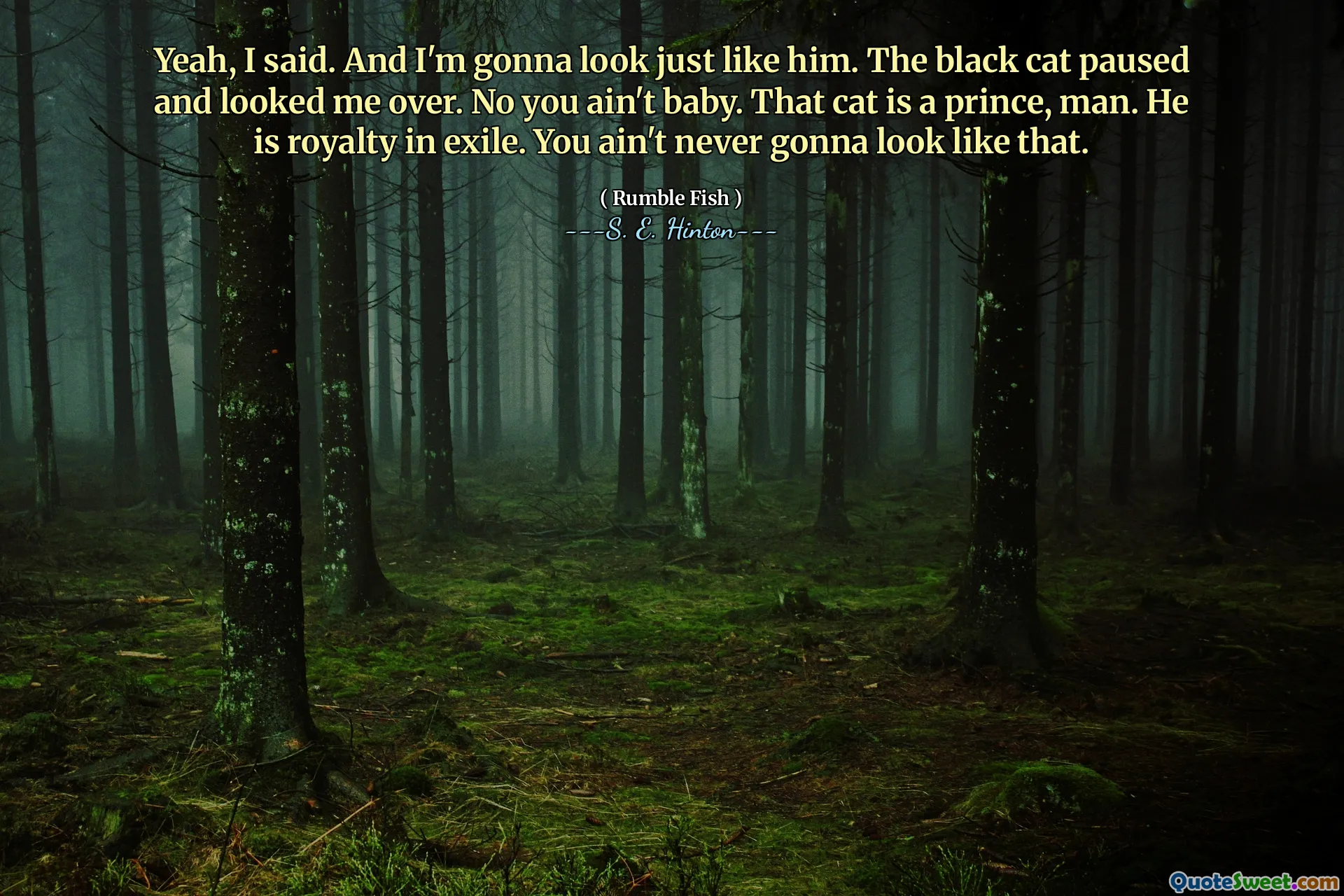
Yeah, I said. And I'm gonna look just like him. The black cat paused and looked me over. No you ain't baby. That cat is a prince, man. He is royalty in exile. You ain't never gonna look like that.
This quote poignantly captures the tension between aspiration and perception of identity. The speaker expresses a desire to resemble someone they admire, possibly a figure of significance or charisma, symbolized by the black cat. The feline, personified here with a moment of pause, serves as a metaphor for something noble and elusive—"a prince" and "royalty in exile." The black cat embodies an ideal of regal dignity that the speaker yearns to attain but recognizes as inherently inaccessible. The interaction subtly explores themes of self-image and the social hierarchies that influence our aspirations. The dark, mysterious aura of the black cat suggests a sense of mystique and individuality that cannot simply be replicated. It raises questions about the nature of identity: To what extent can we emulate those we admire? Is admiration rooted in genuine understanding or surface-level aspiration? The phrase "You ain't never gonna look like that" underscores a sense of resigned acknowledgment that true nobility or innate qualities are not easily transferable. This reflection is relevant universally, as many individuals grapple with the desire to emulate idols or achieve a certain social image. In literature, animals such as cats often symbolize independence, mystery, and a certain defiance of conventional norms, aligning well with themes of authenticity versus imitation. Overall, this quote encapsulates a poignant struggle with self-acceptance and the acknowledgment of unique intrinsic qualities that distinguish us from the ideals we admire.






